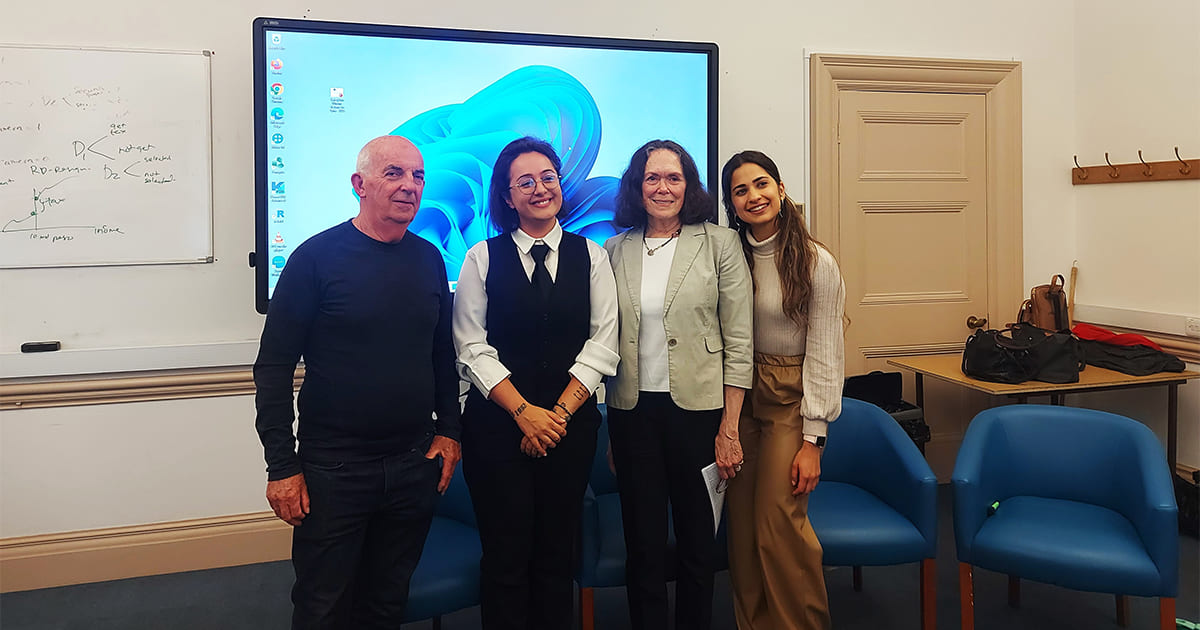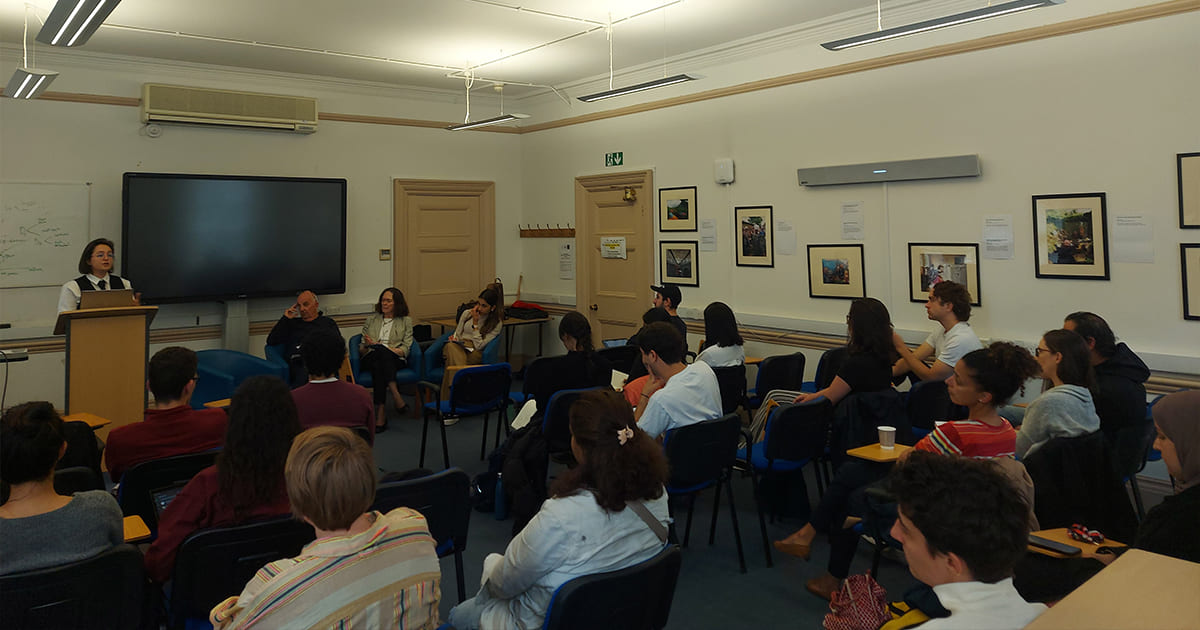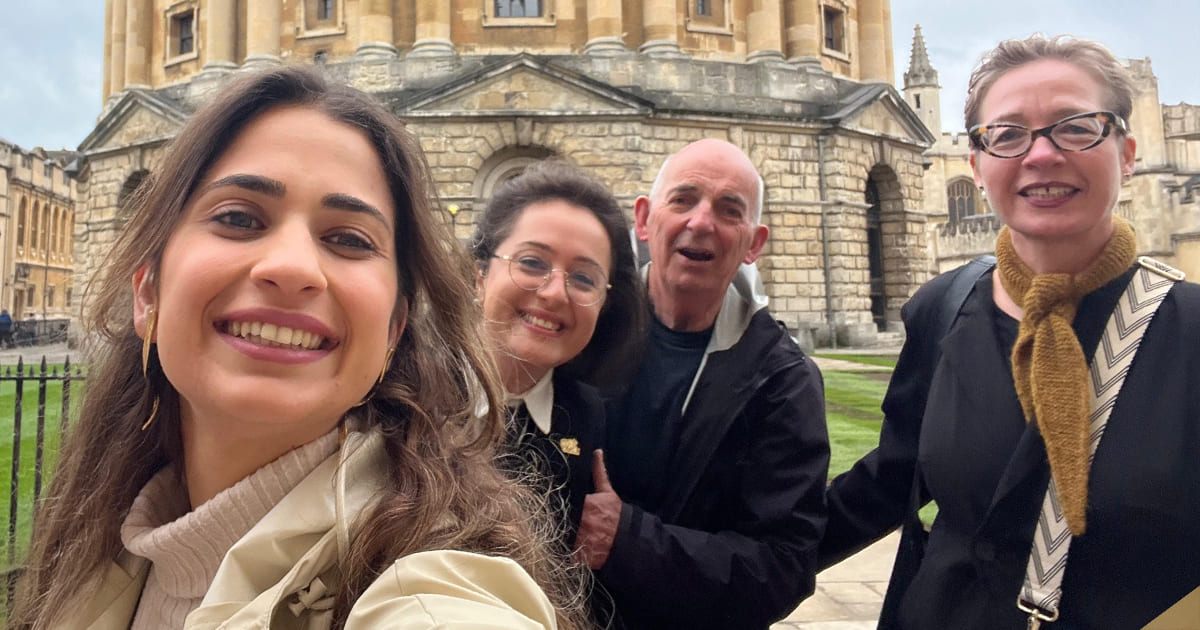Alumna, Faculty and Alma Mater Across Borders
Through a collaboration between LAU and Oxford, alumna Josiane Matar and IMS Director Jasmin Lilian Diab spotlight refugees’ agency and the need to rethink return beyond policy frameworks.
Last year, before the outbreak of war in Lebanon in 2024, LAU alumna and Visiting Fellow at LAU’s Institute for Migration Studies (IMS) Josiane Matar (BA ’18) found herself conducting fieldwork on refugee governance in Lebanon.
Backed by considerable expertise in the field, particularly on how refugees navigate liminality and negotiate survival, Matar’s fieldwork came with its own thorns, prompting difficult questions. How could she capture what it meant to research displacement in a country where she had watched Beirut’s port explosion scatter refugee families in 2020, or where risk is not necessarily hypothetical but rather woven into daily survival?
This tension between institutional frameworks and ground truths would shape her journey from her alma mater to the University of Oxford. There, in addition to pursuing her DPhil in migration studies, she collaborated with the Refugee Studies Centre (RSC) and the Centre on Migration, Policy, and Society (COMPAS) to moderate a symposium on Syrian return with LAU’s own Dr. Jasmin Lilian Diab, assistant professor and IMS director, as well as Emerita Professor of Anthropology and Forced Migration Dawn Chatty and Emeritus Fellow Nicholas Van Hear at the University of Oxford.
Titled Safe for Whom? Rethinking Return Through Marginalised Refugee Voices, the symposium was held on June 5, 2025, at Queen Elizabeth House, Oxford, after a pivotal moment in Syria’s conflict rekindled debates about the possibility and meaning of return to one’s homeland.
“When I first met Dr. Diab and learned she was working on the question of return, I immediately thought this would be a powerful opportunity to bring her voice into the Oxford academic space,” said Matar when asked about her incentive behind including Dr. Diab’s research.
To Matar, Dr. Diab’s work at the IMS was essential not only because it bridges Western and Eastern ideologies on migration, but also because it reveals uncomfortable truths: Safety is not just determined by the absence of state persecution alone, and regime change is not sufficient to erase the social attitudes and fractures that make return perilous.
In addition to highlighting how mainstream discussions on return often overlook the relativity of safety in such conditions, Dr. Diab presented her latest findings on the nuances of the experiences of marginalized groups, including Syrian female-headed households, LGBT refugees, and Palestinian refugees from Syria (PRS).
“She centers the experiences, needs and concerns of refugees themselves,” added Matar. “That human-centered, grounded perspective was exactly what I wanted to bring into this debate … [Her] research embodies the kind of rigorous, field-based scholarship that speaks directly to the realities of displacement and return, and I felt it was essential that these voices be heard here in Oxford.”
According to Dr. Diab, the collaboration between the IMS and Oxford’s RSC and COMPAS was also the result of shared scholarly commitments to amplifying displaced voices, advancing critical perspectives on migration governance, and offering an evidence-based counterpoint to emerging political narratives.
“I had been engaging with scholars affiliated with both centers over the past year, particularly through overlapping interests in queer displacement, post-conflict migration governance, and participatory research ethics,” she said.
As someone who has long engaged with displacement, not just as a researcher but also through community partnerships, Dr. Diab sees amplifying overlooked voices as a responsibility. “It wasn’t just about presenting research,” she said. “Rather, it was about advocacy, solidarity, and rethinking who gets to define what safety and return should mean.”
For both scholars, the crux of such discussions is to confront the gap between constructed narratives about displacement and present the fractured realities refugees actually navigate.
“Governance isn’t just implemented through policies and institutions, but it’s constantly shaped and adapted by the people most affected by it,” noted Matar. Engaging in these conversations clarifies to her that “refugees will play a central role in shaping what return looks like, and that their choices, agency, and networks will be just as important—if not more—than policy decisions made by the international community and host governments.”
Ultimately, added Dr. Diab, the research, across standalone papers for each of these communities, calls for a departure from abstract policy “pillars” like safety, voluntariness, and dignity, toward a plural understanding of what these terms mean to those navigating marginalization.
As the region continues to grapple with instability and shifting migration patterns, IMS remains committed to advancing conversations on displacement, safety and return, both locally and globally.


